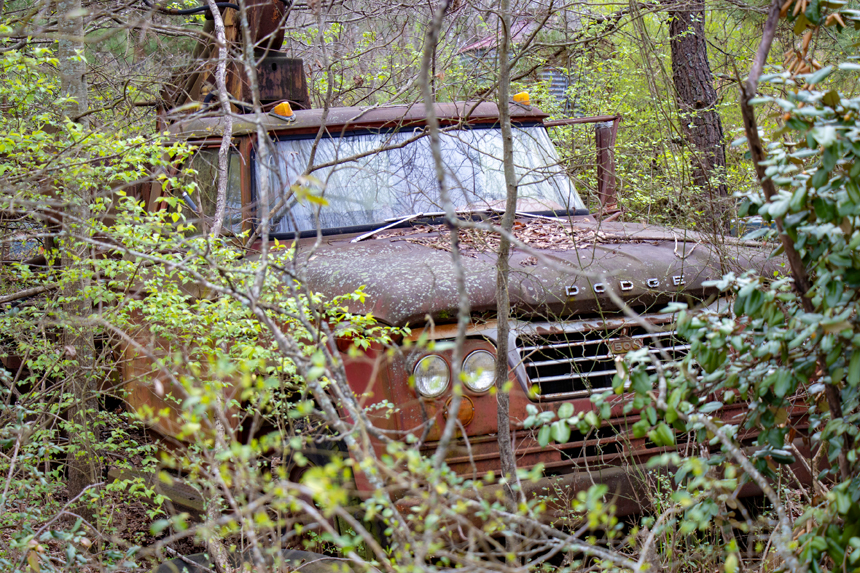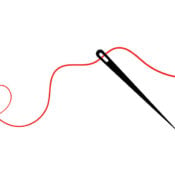Maddie Sowles eased her rental car down the rutted dirt road, past a series of summer cottages all buttoned up for winter. Several hugged the shoreline, others were set farther back. Their delightful porches and living rooms faced the lake, and their less attractive backsides turned toward the road. All seemed lonely, longing for their warm weather inhabitants.
This was her mother Leslie’s last trip to Vermont. Maddie had picked tamarack season, a favorite time of year for both of them. The vivid spectacle of fall foliage season was gone, along with the leaf peepers, replaced by the soft yellows and orange-tinged tamarack trees getting ready to drop their needles. Maddie could see piles of gaudy yellow and red covering the floor of the woods, now open and permeable after the hardwoods lost their leaves, making it easier to negotiate deep woods — a tactical advantage given Maddie’s mission that day.
It had been a solid year of last events for Maddie’s mother. Last Christmas, last New Year’s, last Fourth of July, last birthday, last breath.
Maddie pulled into the parking spot in the back of the kitchen entrance to her family’s cottage and eyeballed a coyote nosing around the back porch. It stared, probably wondering if she had food or maybe would die soon and become food.
It was unheard of to see coyotes here in the summer with so many people and dogs around, but coyotes were always close by, waiting. Now they were back.
Over breakfast, Maddie’s friend Johanna had set a handgun on the table next to the scrambled eggs.
“Take my gun with you today. You’ll be in the woods. Coyotes are not dogs. And Eastern coyotes are bigger than the ones you see in California. Part wolf. They do not have manners.”
Now, Maddie wished she’d taken Johanna’s offer. Instead, she picked up the plastic baggie, filled with gritty gray ashes, from the seat next to her and opened the car door. The coyote took the hint and trotted down the lake path.
The key to the kitchen door was still over the first post on the porch. The inside of the cottage was colder than outside, but she wasn’t staying long.
Maddie set the baggie on the dining room table and gave it a pat. “Sit tight, Mom. We’ll be on our way soon.”
The living room’s far wall was a mosaic of U.S. government geodetic survey maps from 1900, pieced together along the seams and held in place by thumbtacks. Together, they comprised a detailed topographical view of the Northeast Kingdom region of Vermont. Toward the bottom, Maddie located the section of the map she required. It was somewhat creased, indicating it had been removed, folded, and put to work before. She could see faint pencil markings in the autumn light filtering through the blinds.
She knew current maps no longer captured the details of the old granite quarries on Woodstone Mountain. A tiny x marked the location of her destination — a quarry not shown on modern maps. Ground Zero for her mission.
* * *
The next stop on the day’s excursion was to purchase provisions at Brochu’s General Store — the only store in Greenwood. In summer, the place buzzed with year-round residents and seasonal folks. By early November, Maddie had the aisles to herself. As she gathered her bag of supplies, her mother’s long-time friend, Janet, walked in.
“Madeline. I thought I saw you.” Janet waved toward her house, directly across the street from the store. Nothing escaped Janet’s surveillance of comings and goings at this critical intersection. “Off-season visit from California? Were you going to stop by?”
“Janet! Wow. I thought … maybe tomorrow? I’d like to get your advice on Mom’s memorial service?”
“I can tell you that right here. I think you should hold one now and not wait for next summer. Your mother grew up here. Her old friends are still here.”
“She had a lot of summer friends too.”
Janet’s face spoke volumes about what she thought of that. “I suppose that’s what your grandparents want. Since they moved away and all.”
“It’s hard for them to travel these days. Summer is easier. But speaking of old friends, do you know a guy named Chester Wilcox?”
Janet blinked and stepped back. “Chester. Chester skedaddled over 20 years ago. Maybe 25. And good riddance. He was a bit older than us. Always someone to avoid, even when we were in elementary school.”
Twenty-six and a half years, actually. Maddie stared at the street, recalling the pictures of Chester she’d found in the digitized high school yearbooks — from smirking freshman to smoldering senior. Why would her mother ever accept a ride from a guy like that?
“What about his parents?”
“They left a bit after his evaporation. Arizona. Cut from the same mold. He was no friend of your mother’s, I can tell you that. Anyone he called a friend would be in prison or long dead. Why the hell do you want to know about him?”
“Just something my mother asked me to do.”
“Like piss on his grave?”
A cackle escaped before Maddie could smother it. She gave Janet a quick hug around her stiffened shoulders. Janet had no children to take on thankless missions. “Don’t worry, Janet. Next summer, I’ll save a spot for you in the family pew. Right up front. And I’ll stop by tomorrow.”
* * *
Local law enforcement was handled by the nearby Hartwell Police Department, located in the spacious basement of the town’s municipal building. Maddie had never visited before and was struck by how bright and airy it felt, thanks to being built into the side of a hill.
The parking lot provided a grand view of downtown Hartwell. Her family had deep roots here; it was her mother’s hometown, but no one in her family lived in Hartwell anymore. Now the Sowles were just summer folk.
It would have been a short walk to the police department 26 years ago when Chester assaulted her mother, but Leslie never made that walk. Instead, her mother decided to leave town, returning only for summer visits to the family cottage on the lake ten miles away.
Maddie introduced herself to the officer at the front desk. According to his badge, his last name was Montague. He was probably about ten years older than Maddie — mid-30s or so.
“And what can I help you with, Ms. Sowles?” he asked.
“I believe I know the location of the body of a missing person,” she answered. “Chester Wilcox. He disappeared 26 years ago.”
Officer Montague raised his eyebrows, wrote down a few notes, and asked her to take a seat.
In less than a minute, he was back. “This way. The Chief will see you.”
Chief Norman Willey sat behind a big desk piled high with papers, his computer and monitor to one side.
“Hello, Chief,” she said before he had a chance to stand up. “I see lots of your reports in my subscription to the Hartwell Gazette.”
“Ms. Sowles,” Willey said. He nodded to Officer Montague, who left, closing the door behind him. “So. You know where a body is hidden?”
Maddie took a seat and studied Willey. He looked to be in his 50s. Maybe 60. He was probably local. Every other person around here was a Willey.
“Maybe you remember my mother? Leslie Sowles?”
For the first time, the Chief looked her in the eyes. “Leslie. Sure. You use her last name?”
“My dad was never in the picture.”
“How’s your mother?”
“Dead, actually. Pancreatic cancer. Two months ago. Forty-nine years old.”
Chief Willey stared at Maddie’s forehead as if she might have some message written there. “And what body is hidden and where?”
Maddie inhaled deeply and shifted in her seat. “Chester Wilcox. Old quarries.”
Willey’s reaction was not very different from Janet’s, except he was sitting down. His chair moved back several inches, then rolled forward.
“Chester. Holy crap. It’s been a long time since I’ve heard that name.”
“My mother told me her car broke down in Montpelier, and Chester offered her a ride home. This would have been in the summer, 26 years ago. At some point, he insisted on driving around the old Woodstone quarries.”
Willey coughed. “Let me guess. Knowing Chester, things got rough.”
“The good news is she escaped. Somehow, she broke loose on those back roads around the quarries. He was chasing her, but she finally shook him around the Lost Quarry.”
“I used to go skinny dipping in the big gray quarry, but we avoided the one you’re talking about. Not big, but steep sides. No way to climb out without a rope.”
“According to my mother, it was one of the original quarries. On the small side. She didn’t think much of it at the time because she was so relieved to get away. She was terrified of seeing him again, and I guess she was too embarrassed to file a report. She left town right after.”
“I never heard anything about an attack, but let’s just say I’m not surprised. I was a new enlistee then. I do remember we were all a bit relieved when Chester disappeared.”
“At first, she was sure he would still come after her. That was why she left. She was happy when she heard he had disappeared and figured he’d run off. But later, she started to believe that maybe during the chase, he might have fallen in the quarry and couldn’t climb out and … well … drowned.”
Chief Willey looked at her from under hooded eyelids. “She told you he’s in the Lost Quarry.”
“Right.”
“And you’d like me to check that out?”
“You or maybe the state police? I’m not sure who would have jurisdiction.”
Willey leaned back in his chair until it squeaked in alarm, a faint smile on his face. “Do you know how many animals must have fallen into that quarry over the years? Hundreds? Thousands? Bears? Deer? Raccoons? How many bones do you think are in there?”
“I gather you’re saying you wouldn’t consider pumping out the quarry or diving for an animal like Chester?”
Willey’s smile turned conspiratorial. He leaned forward. “As a citizen of this county, I wouldn’t walk across the street for the likes of Chester. As Chief of Police, I would say that the evidence isn’t strong enough to justify the expense.”
“A dying confession doesn’t count?”
“Your mother was traumatized.”
Maddie stood. “You’re not taking this seriously.”
Chief Willey stood as well. “Ms. Sowles. At the time of his disappearance, Chester was being investigated for at least three other sexual assaults, and we suspected he was involved in two murders. I’m sure if it weren’t for underreporting, there would be much more. Wherever Chester is, he can stay there. It was a long time ago, but I remember your mother as a delightful person, and as far as I am concerned, she can rest in peace.”
* * *
Before Maddie climbed into her rental car, she paused in the police department parking lot to study Hartwell again. What would her life have been like if her mother had stayed here?
A renewed surge of rage engulfed her. Chester’s actions had triggered a mudslide of destruction through her family. The more she knew about Chester, the more she hated his guts. Even if he was her father.
* * *
As she drove south on her final leg of the mission, Maddie tried to visualize that route in the early 1900s. During that time, the hills would have been barren, stripped of vegetation to reveal a railroad, cranes, slag heaps, storage and working sheds, and massive holes in the earth.
These days, the steep hills crowding close to the road were covered in dense, impenetrable hardwood forests. With the leaves gone in this post-fall foliage season, she could now occasionally glimpse hints of the past — a wooden train trestle, an old derrick, remnants of a rusted water tank.
Maddie had tried using DNA testing services to identify her father, but those turned up no relatives from her father’s side at all. She never believed her mother’s tale of a casual, anonymous hookup after bar hopping in Boston.
Even on her deathbed, her mother denied Chester was Maddie’s father. Leslie insisted that she escaped from Chester before he could “fulfill his worst intentions,” as she phrased it.
Sweetie, you’re going to have to come to peace with that. You will probably never know who your father was.
Past tense, Maddie noted. Maddie thought her mother was lying.
After all, once someone’s committed murder, it would be small potatoes to lie about the consequences of a sexual assault.
* * *
Maddie used the camera on her cellphone to magnify the survey map. She quickly realized most of the old roads were still open but not maintained. The best roads had been constructed on top of the former railroad beds, built on discarded slag from the quarries.
Rather than risk damage to her rental car’s undercarriage, she decided she was close enough to the Blue Quarry to finish on foot. Shouldering the backpack with her supplies, she grabbed her hiking poles and set out.
She followed the last section of the old railroad line until it ended at a beaver pond, where she left the path along the pond’s edge and ducked through a thicket of dense hardwoods and tamaracks. Sure enough, just as her mother said, thoroughly invisible from a mere handful of yards away, sat a rusting truck.
Maddie yanked open the passenger door — or what was left of it — and searched the area around the glove box. A piece of surviving paper under the disintegrated operating manual identified the owner as Chester Wilcox. Although she was certain any DNA would be long gone, she put the vehicle registration into a baggie and added it to her backpack.
Gunpoint. He had a gun, Maddie. I knew he’d use it. I had to walk through those woods until we got to the Blue.
Maddie made her way back to the pond and continued close to the edge, keeping her eye on glimpses of the beaver pond through the branches. After about 50 yards, the trees abruptly ended, and Maddie found herself looking up at towering gray-blue cliffs on the opposite side of a larger body of water. A series of enormous granite blocks formed a partial dam, separating the water in the deep quarry from the water flowing toward the beaver pond.
She clambered up to the top of the closest block. It was about the size of a small house, flat on top.
I knew he’d kill me once he was finished. I was ready to run if he climbed first, but he made me go ahead. When I got to the top, I turned and caught Chester on the way up. I kicked him under the chin and he fell back to the bottom. A bit stunned. He still had the gun, but it would be my only chance. I managed to scramble down and started running.
Maddie was not about to scramble down from anywhere in the rough tumble of granite blocks and crags. And she wasn’t going to run either. She set off at a careful pace, probing with her hiking sticks, to the far end of the Blue Quarry and up into the woods.
It was so hard to run. The rocks. The trees. And it was uphill. I had no idea where I was headed. Chester was close behind. He fired one shot that hit a tree right next to me.
After about a hundred yards, Maddie stopped to study the old map and the little x her mother had marked. It looked like she was on track to find the Lost Quarry — a place she didn’t want to stumble upon by accident.
As she re-folded the map, a movement caught her peripheral vision. She whirled and saw two coyotes moving furtively in her wake. Her breath choked in her throat. She waved her hiking sticks, stepping in their direction, and they melted back into the woods.
Maddie wasn’t fooled and made a mental note to watch her back.
A few steps farther, the ground dropped away in front of her.
The Lost Quarry was much smaller than she had envisioned — a rough rectangle only about 50 by 75 feet, if that. The sides were not intimidating at first glance, rising perhaps only three to five feet above the waterline, but on closer inspection she could see that there were no handholds and also no underwater ledges to stand on. Anyone who fell in would be forced to tread water. Indefinitely.
Unless someone came to help.
I almost fell in. Before I could change direction, he was there. I picked up a tree branch and swung at him. It was rotten and fell apart but at least it stopped Chester for a moment.
Maddie peered over the edge. Without an outlet, the water was a cloudy, coppery mess and smelled of something like mushrooms simmered in sulfur.
He still had the gun, but he spun around. I took what was left of that stick and stuck it into his stomach and over he went. I swear I was off and running before he hit the water.
Studying the murky surface, mottled with bright orange and red leaves, Maddie considered what would have happened to Chester’s body after he succumbed to drowning. At first, he would have sunk, then floated as his body decayed and filled with gases. Then sunk for good.
From her backpack, she pulled out a small boat anchor tied to a nylon rope. She tossed the anchor out toward the middle and watched it sink from sight, letting the rope slide through her fingers. When the rope reached its end — one hundred feet — the anchor was still sinking. No wonder Chief Willey didn’t want to mount a fishing expedition.
I could hear him yelling. Calling my name. Begging me to come back. I kept on running. I assumed he had gotten out and run away. It didn’t occur to me that he’d died there until a few years later. I was back for a summer visit, and we went to a picnic on Strawberry Hill. You would have been about six or seven. Someone mentioned hiking in the quarries and to be careful to avoid that one.
I hiked in. His truck was still where he parked it.
For all those years, I’d been haunted that he was going to find me and try to kill me. After that day, every day I have been haunted by the fact I killed a man.
Maddie looked over her shoulder. The coyotes were back. She scanned the ground around the edge of the quarry, searching for something better than her hiking sticks to use as a weapon. No luck. She was on her own.
She lifted her mother’s ashes from the backpack and hefted the baggie in her hands.
All of them. Dump them all in that quarry. Then my soul will be at peace.
Maddie set the baggie down and rummaged in the backpack for her empty water bottle. She tied the free end of the anchor rope around the neck and lowered the bottle into the water. Once full, she hauled it up and capped it tightly.
Holding the bottle up to the sky, she squinted at the murky water and the little squirmy things floating in it. “Okay, Chester. I know there isn’t much of you in there, but this is as good as it gets. Consider yourself saved.”
She paused and checked on the coyotes. There were three now, an attentive audience studying her from across the quarry.
“I don’t know if you’re my father or not. But you have been part of my life all these years. You ruined so much of my mother’s happiness.
“You were the architect of your own demise. But now I’m going to take you away and put you in a sunny spot with a pleasing view, and I hope it gives you some peace.”
She stored the water bottle in the backpack and turned her attention to the baggie. As she squeezed the gritty ashes through the plastic, she thought of her shy, overprotective mother with a warm heart and a spine of steel.
“Mom. Sorry. I’m not going to put even one pinch of your ashes here. This place has already sucked away too much of your life, and I don’t want to ever come back here to visit you. You will be in the joyous places. The lake, the cottage, the old house in Hartwell, Nichol’s Ledge, our favorite picnic places, the family cemetery plot, and a small bit that will be wherever I call home.”
Maddie packed up the anchor and the rope and placed the baggie at the top of the backpack.
She looked up to see what the coyotes thought of this, but they were gone.
Shouldering her burdens, she picked up the hiking poles and headed home. Time to start a new mission.
Become a Saturday Evening Post member and enjoy unlimited access. Subscribe now




Comments
Thanks for sharing this well-told tale, Susan. To answer the opening question first, I believe Maddie did find a way to honor her dying mother’s final wish, placing herself in near peril at that to do so. We learn of the geography of where she is, who she is, her mother’s past, facts about the treacherous Chester, but questions still unanswered.
I liked the conversational style in which you told the story, and your use of italicized flashbacks as well. The fact questions remain unanswered is perfectly fine, because life’s a mess! The resolution for this story and its mission here, had just the right ending, and that’s all that matters.